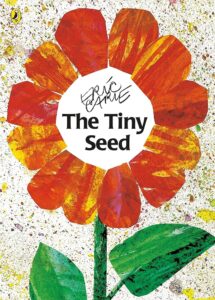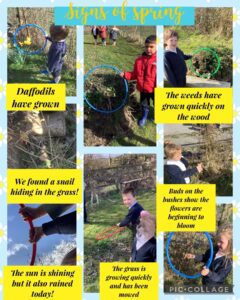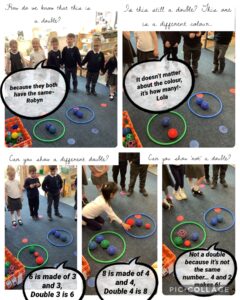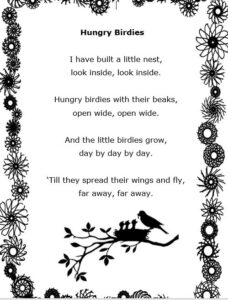We’ve continued our learning on coastal habitats this week, by taking a closer look at rockpools and some of the sea creatures you may find in them.
Sharing a Shell
We enjoyed reading Sharing a Shell by Julia Donaldson.
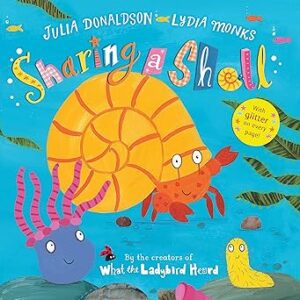
We looked at the characters, events and settings and matched them with real images and text in a non-fiction book. In our writing, we wrote about what you might find in a rockpool.
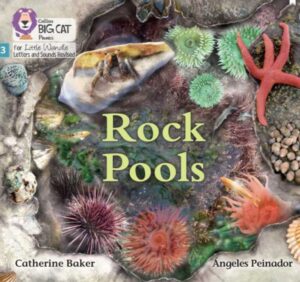
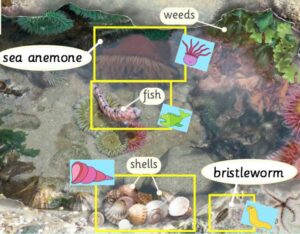
The book also had some great messages about sharing and how to treat others. Linked to this, our word of the week was thoughtful.
Maths; counting and recognising the pattern of the counting system
This week, we’ve revisited our some of our key counting skills. Here are some of the skills that we have practised:
- tagging each object in a group of up to 10 objects (1-to-1 correspondence)
- knowing number names to 10 and their order (stable order principle)
- knowing that the last number counted gives the total in the set (cardinal principle)
- counting up to 10 things that can’t be seen or tagged, such as jumps, hops, sounds, etc. (abstraction principle)
- understanding that the quantity remains the same when (up to 10) objects are counted in a different order (order irrelevance principle)
- developing strategies to keep track of what has and has not been counted (e.g. rearranging objects into a line, moving objects as they’re counted.
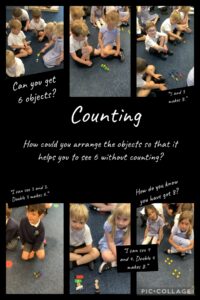
Holidays in the past
We’ve been looking at the way people enjoyed a seaside holiday in the past, specifically in Victorian times. We’ve talked about the similarities and differences with seaside holidays in the present day.
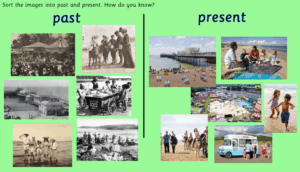
Home Learning – Ask your child what they can remember about seaside holidays in the past.
Phonics
Summer 2 week 3 has focused on:
Phase 4 words ending –s /s/
Phase 4 words ending –s /z/
Phase 4 words ending –es
Longer words
Please continue to use the Little Wandle sheets, sent home with your child each week.
Poetry Picnic
Each week we learn a new poem and recite this poem each day. By saying the poem out loud, we can focus on the sounds and rhythm of each word or line. We talk to the children about how this can help us become better readers.
This week’s poem is the traditional rhyming song- The Big Ship Sails.
The big ship sails on the ally ally oh,
The alley ally oh,
The alley ally oh.
The big ship sails on the ally ally oh,
On the last day of September.
The captain said, ‘It will never, never do,
Never, never do,
Never, never do.’
The captain said, ‘It will never, never do,’
On the last day of September.
The big ship sank to the bottom of the sea,
The bottom of the sea,
The bottom of the sea.
The big ship sank to the bottom of the sea,
On the last day of September.
More of our learning this week…
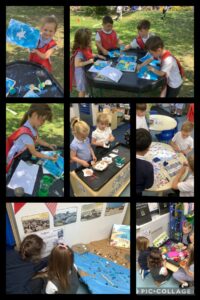
Reminders and Dates
Wednesday 2 July, 10.00-11.30am- Meet your new teacher. Your child will visit their new teacher this morning.
Thursday 03 July- Class trip to Nell Bank.
Friday 04 July, 3.15-4.15pm- Rec/KS1 FOSP summer disco.
Tuesday 08 and Thursday 10 July – 8.35am or 3.15pm – Learning journey drop-in.
Friday 11 July, 9.15-10.30am- Sports Day.
Swimming
Rainbow- 25 June, 09 July
Sunshine- 02 July













